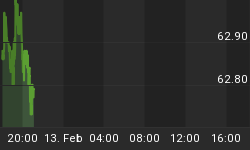Buying permanent residency in the United States just got a lot more expensive. As the Trump administration cracks down on every form of immigration it is aware of, the coveted golden investor visa is adding more gold to the requirements.
In fact, the visa will now cost investors nearly double.
New rules issued by the US Department of Homeland Security raised the minimum cost of investing for a visa from $500,000 to $900,000 and the standard minimum investment from $1 million to $1.8 million.
The new rules also affect what you can invest in.
Until now, foreign investors have been able to choose EB-5 visa paths by investing their money in regional center projects approved by states for a period of five years. The new rules kick states out of this game, entirely, making Homeland Security the boss in terms of drawing districts and approving projects eligible for EB-5 investments.
So, the minimum price of future investing for foreigners will be $ 900,000, instead of $ 500,000 as it has been so far.
Ken Cuccinelli, acting director of U.S. Citizenship and Immigration Services (USCIS), is basically saying this is all about inflation.
Apparently a mountain of inflation, given the near doubling of investment requirements here.
“Since its inception, the EB-5 program has drifted away from Congress’s intent. Our reforms increase the investment level to account for inflation over the past three decades and substantially restrict the possibility of gerrymandering to ensure that the reduced investment amount is reserved for rural and high-unemployment areas most in need,” said Cuccinelli. According to him the final rule also provides that the minimum investment amounts will automatically adjust for inflation every five years.
Cuccinelli, Trump’s new hard-line and much-reviled immigration chief, was installed in this position last month. And he’s on a major anti-immigration roll.
Related: Tesla Stock Crashes On Poor Earnings Report What does a doubled golden visa requirement mean for the economy?
The EB-5 program was created in 1990 with the primary aim of encouraging investments in economically distressed areas. Indeed, the boom of this visa-program has started in 2008, during the Great Recession and turmoil in American capital markets. From year to year, the program has become popular and financially viable for all sides of the chain. According to data, It now generates more than $5 billion a year.
Industry groups are warning about the potential negative impact of raising the investment threshold. Quite simply, it could easily reduce capital available to American companies.
According to "Invest in the USA", a trade association representing federally-sanctioned organizations that pool EB-5 investment, the new rules are likely to “result in the virtual elimination of the EB-5 Program”.
The EB-5 visa has become particularly popular among wealthy Chinese and Indians citizens who seek to relocate to the U.S.
And there’s already a cap on this visa: Annually, only 10,000 can be issued. At the same time, there is a per-country limit of 700 visas.
Related: Battery Metals Face Looming Supply Crunch
According to Vivek Tandon, CEO, EB5 BRICS, an EB5 visa consultancy “from 2014 to 2019, the number of Indian applications increased from 50 to 800 a year.
"While there may be some decline in demand, it is still an easy route to get a green card,” said Tandon.
Of course, there is a big difference between a $500,000 and a $900,000 investment, so the process sees a downward spiral.
“Indian immigrants will be slower in applying for the EB-5 visa. They will also be careful with respect to their choice of regional center and projects,” Abhinav Lohia, Director-South Asia and Middle East, CanAm Investor Services, told India’s Economic Times.
In the meantime, though, there could be a short-term run on EB-5 visas because the new minimum investment requirements don’t take effect for another 120 days. It’s a prospect that has immigration lawyers specializing in this category eyeing huge potential--even it is is only short-term.
By Tom Kool for Safehaven.com
More Top Reads From Safehaven.com

















